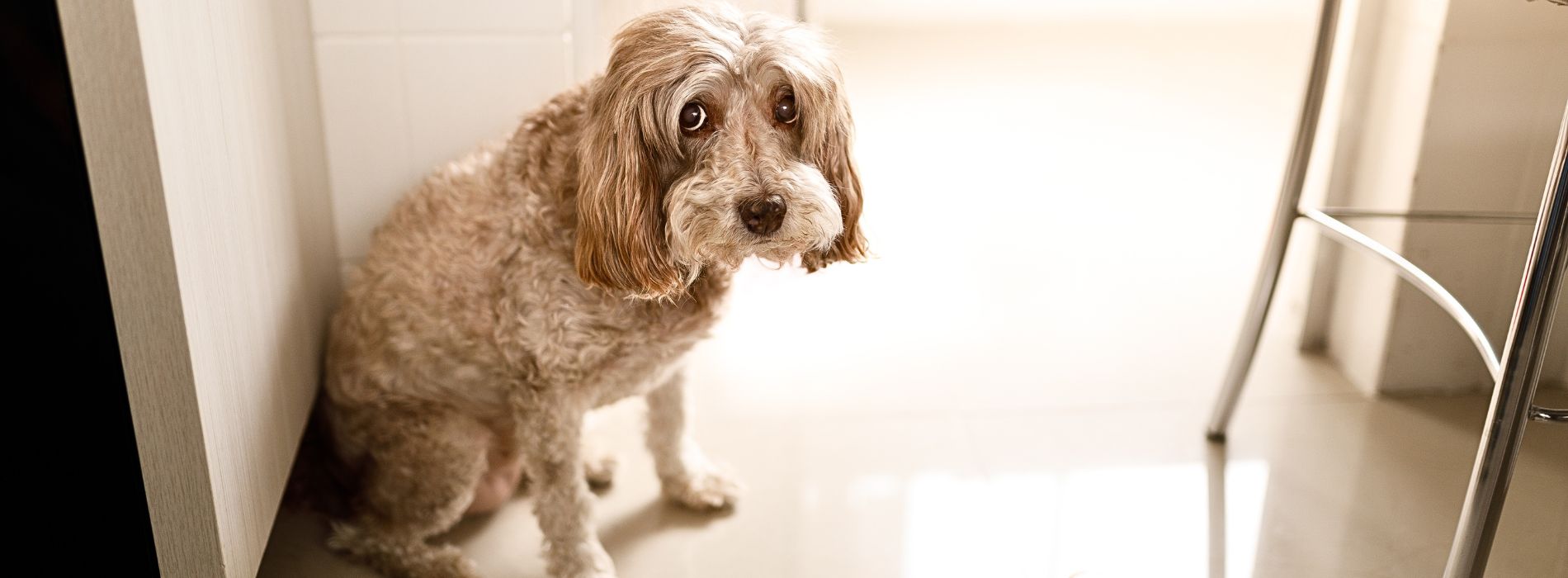- Pet Food Dispenser With Camera: The Ultimate Way to Monitor Your Pet’s Meals! - November 16, 2023
- Automatic Pet Feeder With Timer: A Time-Saving Solution for Busy Pet Owners - November 16, 2023
- Pet Tracker for Small Dogs: Discover the Ultimate Solution for Tracking Your Furry Friend - November 16, 2023
Noise levels can induce stress in pets, affecting their overall well-being. Noise-induced stress can lead to behavioral changes and health issues in pets.
How Noise Levels Impact Your Furry Friend
When it comes to your furry friend, noise levels can have a significant impact on their overall well-being. Just like humans, pets can also experience stress due to loud and sudden noises. It is essential to understand how noise sensitivity in pets can affect them and to be aware of the common sources of noise stress.
Noise Sensitivity In Pets
Noise sensitivity varies among pets, and some animals are naturally more prone to being affected by loud sounds than others. Dogs, for example, may exhibit more significant noise sensitivity compared to cats. Some breeds, such as toy poodles or border collies, may have a higher predisposition to noise stress. However, every pet is unique, and it is important to observe their reactions to different noise stimuli.
Common Sources Of Noise Stress
There are various sources of noise stress that can affect your furry friend, some of which you may not even realize. Here are some common culprits:
- Loud music or television
- Fireworks and thunderstorms
- Construction noises
- Traffic noise
- Household appliances (vacuum cleaners, blenders, hair dryers)
- Doorbells and door slams
Effects Of Noise Stress On Pets
Noise stress can have a range of effects on your pet, both physically and psychologically. Here are some potential consequences:
- Anxiety and fear: Loud noises can cause anxiety and fear in pets, leading to behavioral changes and distress.
- Aggression: Some pets may become aggressive as a response to stressful noises.
- Digestive issues: Prolonged exposure to loud sounds can disrupt your pet’s digestive system, resulting in diarrhea or loss of appetite.
- Sleep disturbances: Pets can have difficulty relaxing and sleeping when exposed to noise stress, leading to fatigue and irritability.
- Escaping behaviors: In extreme cases, pets may try to escape from their surroundings in an attempt to find a quieter and safer place.
Signs Of Noise Stress In Pets
Recognizing the signs of noise stress in your furry friend is crucial in addressing their needs. Here are some common indicators to look out for:
- Panting and drooling: Excessive panting or drooling can be a sign that your pet is experiencing stress.
- Restlessness and pacing: Pets may appear agitated and constantly move around when affected by noise stress.
- Trembling or shaking: Shivering or shaking can signal fear or anxiety in response to loud noises.
- Hiding or seeking comfort: Pets may hide in secluded areas or seek comfort from their owners during stressful noise events.
- Excessive barking or meowing: Increased vocalization can be a manifestation of distress in pets.
By understanding how noise levels impact your furry friend and recognizing the signs of noise stress, you can take appropriate measures to alleviate their discomfort and create a more peaceful environment for them.
Creating A Calm Environment
When it comes to keeping our furry friends happy and stress-free, creating a calm environment plays a crucial role. Noise levels can significantly impact our pets’ stress levels, so it is essential to take steps to reduce external noise and create a peaceful space for them. In this article, we will look at ways to design a pet-friendly space focusing on reducing noise and implementing soundproofing techniques. Additionally, we will explore the benefits of using white noise machines or calming music to create a tranquil atmosphere for our beloved pets.
Designing A Pet-friendly Space
Designing a pet-friendly space involves careful consideration of their specific needs and preferences. To create a calming environment:
- Choose soothing colors and textures for your pet’s space, such as soft bedding and calming wall colors.
- Provide comfortable and safe hiding spots for when your pet needs some alone time.
- Ensure there is ample natural light, as it can have a positive effect on their mood.
- Avoid clutter and create a spacious area to prevent your pet from feeling overwhelmed.
Reducing External Noise
External noise can significantly contribute to pet stress levels. Here are some effective ways to minimize external noise:
- Install weather-stripping and seal any gaps or cracks in doors and windows to reduce outside noise infiltration.
- Invest in double-pane windows to provide an extra barrier against noise.
- Use heavy curtains or window treatments to absorb sound and block external noise.
- Place furniture or noise-absorbing materials near windows or areas where noise tends to enter the space.
Soundproofing Techniques
Implementing soundproofing techniques is an excellent way to create a calm environment for your pet:
- Use acoustic panels or foam to absorb and reduce sound in the room.
- Install carpeting or area rugs to help dampen noise and minimize echoing.
- Consider adding soundproof insulation to the walls and ceilings to create a more peaceful environment.
- Seal any gaps around electrical outlets, switches, and vents to prevent noise leakage.
Using White Noise Machines Or Calming Music
In addition to a well-designed and soundproofed space, white noise machines or calming music can contribute to a serene atmosphere for your pet. These techniques can help mask external noises and provide a steady, soothing background sound:
- Choose a white noise machine that offers different sounds, such as rainfall or gentle waves, to find what works best for your pet.
- Experiment with calming music specifically designed for pets, which can help relax and ease their anxiety.
- Place the white noise machine or speakers in a location where it can provide consistent and gentle background noise throughout the day.
Natural Remedies For Calming Pets
Natural remedies can be an effective way to alleviate stress in pets caused by noise. Whether it’s thunderstorms, fireworks, or loud noises from construction, pets can become anxious and agitated. Instead of reaching for pharmaceutical solutions, consider using these natural remedies that can effectively calm your furry friends. In this article, we will explore aromatherapy, herbal supplements and remedies, flower essences, and homeopathic treatments that can help soothe pet anxiety caused by noise stress.
Aromatherapy For Stress Relief
Aromatherapy is a wonderful natural remedy for calming pets. By using essential oils, you can create a calming and relaxing environment for your furry friend. Some essential oils such as lavender, chamomile, and valerian are known for their soothing properties.
To use aromatherapy for stress relief, you can add a few drops of these essential oils to a diffuser and let the gentle scent fill the room. Alternatively, you can dilute the essential oil with a carrier oil such as almond or jojoba oil and apply it to your pet’s collar or bedding. Just remember to use essential oils in moderation and make sure they are safe for your specific pet.
Herbal Supplements And Remedies
Another natural remedy to consider for pet stress is herbal supplements and remedies. These can help promote relaxation and calmness in your pets. Some popular herbs that can be beneficial include chamomile, passionflower, and valerian.
You can find these herbal supplements in various forms such as tinctures, capsules, or powders. Make sure to consult with a holistic veterinarian to determine the appropriate dosage for your pet’s size and specific condition. Additionally, always choose high-quality herbal products to ensure their effectiveness and safety.
Flower Essences For Anxiety
Flower essences are gentle and natural remedies that can help ease anxiety in pets. They are made from the energetic imprint of flowers and can be beneficial in balancing emotions. Rescue Remedy, a popular flower essence blend, is often used to calm pets during stressful situations.
To use flower essences, you can add a few drops to your pet’s water or apply them directly to their skin. These essences can provide a sense of grounding and tranquility, helping your furry friend cope with noise-induced stress.
Homeopathic Treatments For Noise Stress
Homeopathy is another natural approach to consider when it comes to calming pets during noise stress. Homeopathic treatments work on the principle of like-cures-like and aim to stimulate the body’s healing response. There are specific homeopathic remedies available that are specifically formulated to address noise-related anxiety in pets.
Consult with a professional homeopath or holistic veterinarian to find the right homeopathic remedy for your pet. They can provide guidance on dosing and help you navigate the vast range of homeopathic options available.
Behavior Modification Techniques
Seeking Professional Help
When it comes to dealing with noise stress in pets, seeking professional help is essential for a tailored, effective solution. While there are some steps you can take at home to alleviate your pet’s stress, consulting with a veterinarian or working with a pet behaviorist can provide expert guidance and support for long-term solutions. Additionally, for severe cases of noise stress, medication options may be necessary. In this section, we will explore each of these options in detail.
Consulting With A Veterinarian
One of the first steps in addressing your pet’s noise stress is to consult with a veterinarian. Veterinarians have a wealth of knowledge and experience in dealing with animal behavior and can provide valuable insights into your pet’s specific needs. During your consultation, the veterinarian will assess your pet and develop a personalized treatment plan.
In some cases, the veterinarian may recommend behavior modification techniques or training exercises to desensitize your pet to noise triggers. They may also suggest environmental changes to create a more calming atmosphere for your furry friend. Additionally, your veterinarian can provide advice on using anxiety-reducing products, such as pheromone diffusers or calming vests, that can help soothe your pet during stressful situations.
Working With Pet Behaviorists
If your pet’s noise stress persists or if you require further assistance, working with a pet behaviorist can be highly beneficial. Pet behaviorists are experts in animal behavior and specialize in diagnosing and treating behavioral issues in pets. They have a deep understanding of the underlying causes of noise stress and can implement effective behavior modification techniques.
During a session with a pet behaviorist, they will assess your pet’s specific triggers and responses to noise, and develop a customized behavior modification plan. This may include desensitization exercises, counter-conditioning techniques, and positive reinforcement training. By working closely with a pet behaviorist, you can gain the knowledge and tools to help your pet overcome their noise stress and build their confidence in noisy environments.
Medication Options For Severe Noise Stress
In severe cases of noise stress, medication options may be necessary to provide relief and support for your pet. Veterinarians may prescribe anti-anxiety medications or sedatives to help calm your pet during particularly stressful situations, such as fireworks or thunderstorms. These medications can help reduce fear and anxiety, allowing your pet to better cope with the noise triggers.
It’s important to note that medication should always be used under the guidance of a veterinarian. They will determine the appropriate dosage and duration of treatment based on your pet’s individual needs. Regular check-ups and monitoring will also be essential to ensure the medication is effective and to make any necessary adjustments.
Therapeutic Interventions For Long-term Solutions
While medication can provide immediate relief, it is often used as a short-term solution. For long-term management of noise stress, therapeutic interventions can play a crucial role. These interventions focus on addressing the underlying emotional and behavioral responses to noise triggers, helping your pet develop coping mechanisms and build resilience.
There are various therapeutic options available, including behavioral therapy, cognitive behavior therapy, and desensitization techniques. These techniques aim to gradually expose your pet to noise triggers in a controlled and positive manner, helping them develop a more positive association with the sounds that once caused distress. Through consistent training and guidance from professionals, your pet can learn to manage their noise stress and lead a happier, more relaxed life.

Credit: www.labradoodlesbycucciolini.ca
Frequently Asked Questions Of Noise Levels And Pet Stress
Q: How Does Noise Affect Pets’ Stress Levels?
A: Excessive noise can disrupt pets’ sleep, increase anxiety levels, and lead to behavior problems.
Q: Which Types Of Noise Can Stress Out Pets The Most?
A: Loud noises, such as fireworks, thunderstorms, or construction sounds, can greatly distress pets.
Q: What Signs Indicate That A Pet Is Stressed Due To Noise?
A: Signs of pet stress may include shaking, pacing, excessive barking, hiding, or loss of appetite.
Q: How Can I Help My Pet Cope With Noise-induced Stress?
A: Providing a safe, quiet space, using white noise machines, or using calming products can help soothe pets.
Q: Are Certain Pets More Susceptible To Noise-related Stress?
A: Yes, some pets, like dogs with noise phobias or rescue animals with unknown backgrounds, may be more prone to stress.
Conclusion
Excessive noise levels can contribute to heightened stress in pets, affecting their overall well-being and behavior. It is essential for pet owners to be conscious of their furry companions’ sensitivity to loud noises and take necessary steps to minimize exposure.
By creating a calm and quiet environment, incorporating soothing techniques, and using products specifically designed to reduce noise-related distress, pet owners can ensure a peaceful and stress-free living environment for their beloved pets. Prioritizing their comfort and mental health can greatly contribute to their overall quality of life.


